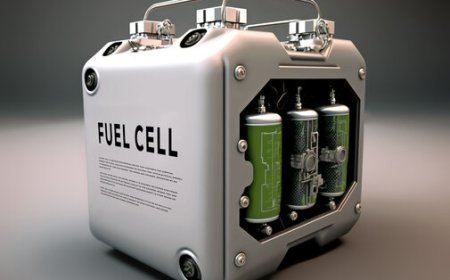Understanding the Role of Insurance in Modern Society: Types, Benefits, and Future Trends
Explore the vital role of insurance in modern society, including its types, benefits, economic impact, and future trends. A complete guide to understanding insurance


In today's fast-paced and unpredictable world, insurance serves as a cornerstone of financial stability, risk management, and peace of mind for individuals and businesses alike. Its more than just a safety netinsurance is a critical component of economic systems, enabling growth, recovery, and innovation by sharing and mitigating risk.
This article provides a comprehensive overview of insura
benefits, role in economic development, and future trends shaping the industry.
What is Insurance?
Insurance is a contractual arrangement in which an individual or entity (the policyholder) pays a premium to an insurance company (the insurer) in exchange for protection against specified risks. These risks may include damage, loss, illness, disability, or liability.
The primary purpose of insurance is risk transfershifting the financial burden of potential loss from the insured to the insurer. In return, insurers pool premiums from many clients to pay out claims to those who suffer covered losses.
Major Types of Insurance
1. Life Insurance
Life insurance provides a lump-sum payment to beneficiaries in the event of the policyholders death. Common types include:
-
Term life insurance (coverage for a specific period)
-
Whole life insurance (permanent coverage with cash value)
-
Universal life insurance (flexible coverage and investment component)
2. Health Insurance
This covers medical expenses arising from illness or injury. It often includes:
-
Doctor visits
-
Hospital stays
-
Surgeries
-
Prescription drugs
-
Preventive care
3. Property Insurance
Protects homes, buildings, and other physical assets from damage or loss due to fire, theft, natural disasters, etc. Subcategories include:
-
Homeowners insurance
-
Renters insurance
-
Commercial property insurance
4. Auto Insurance
Auto insurance Covers damages or losses related to vehicles. It includes:
-
Liability insurance (for injury/damage caused to others)
-
Collision coverage (for vehicle damage from accidents)
-
Comprehensive coverage (for non-collision incidents like theft or weather)
The best thing about this type is that most of the companies having online motor insurance , which means instant application and approval.
5. Business Insurance
Tailored policies to protect companies from operational risks such as:
-
Liability claims
-
Business interruption
-
Workers compensation
-
Professional indemnity
6. Travel Insurance
Provides coverage for unexpected incidents during travel such as trip cancellations, medical emergencies, or lost baggage.
Why Insurance Matters: Key Benefits
? Financial Protection
Insurance shields individuals and businesses from catastrophic losses that would otherwise cause severe financial strain.
? Risk Management
By transferring risk to insurers, policyholders can make more confident personal or business decisions.
? Business Continuity
Companies can recover more quickly from crises like property damage or lawsuits, ensuring minimal disruption.
? Peace of Mind
Knowing that financial support is available in the face of adversity allows people to focus on personal and professional goals.
? Economic Stability
Insurance plays a crucial role in stabilizing the economy by compensating for losses and encouraging investment.
The Role of Insurance in Economic Development
Insurance is not just a personal or corporate toolits a national asset. Here's how it supports economic development:
-
Mobilizing savings: Life and health insurance products encourage long-term saving and investment.
-
Stimulating entrepreneurship: Startups and SMEs can innovate with reduced risk burden.
-
Infrastructure development: Insurers often invest in government bonds and long-term infrastructure projects.
-
Job creation: The insurance sector generates employment directly and indirectly through its support of other industries.
Trends Shaping the Future of Insurance
1. Digital Transformation
From AI-driven underwriting to app-based policy management, digital innovation is reshaping how insurance is sold and serviced.
2. Usage-Based Insurance
Especially in auto and health sectors, premiums are increasingly being based on behavior (e.g., driving habits or fitness data).
3. Climate Risk & Sustainability
Insurers are developing new models to address the growing risk of natural disasters due to climate change.
4. Cybersecurity Insurance
As cyber threats increase, more businesses are purchasing cyber liability insurance to cover data breaches and ransomware attacks.
5. Microinsurance
Designed for low-income individuals, microinsurance offers affordable coverage in developing marketshelping bridge the global protection gap.
Conclusion
Insurance is a powerful tool that supports individuals, businesses, and governments in navigating risk, protecting wealth, and fostering economic growth. Whether its protecting a familys future through life insurance or helping businesses recover from unforeseen events, the value of insurance extends far beyond claimsit builds resilience.
As technology evolves and risks become more complex, the insurance company must adapt to meet changing consumer needs. Embracing innovation, personalization, and sustainability will be key to shaping a more inclusive and secure future.

































